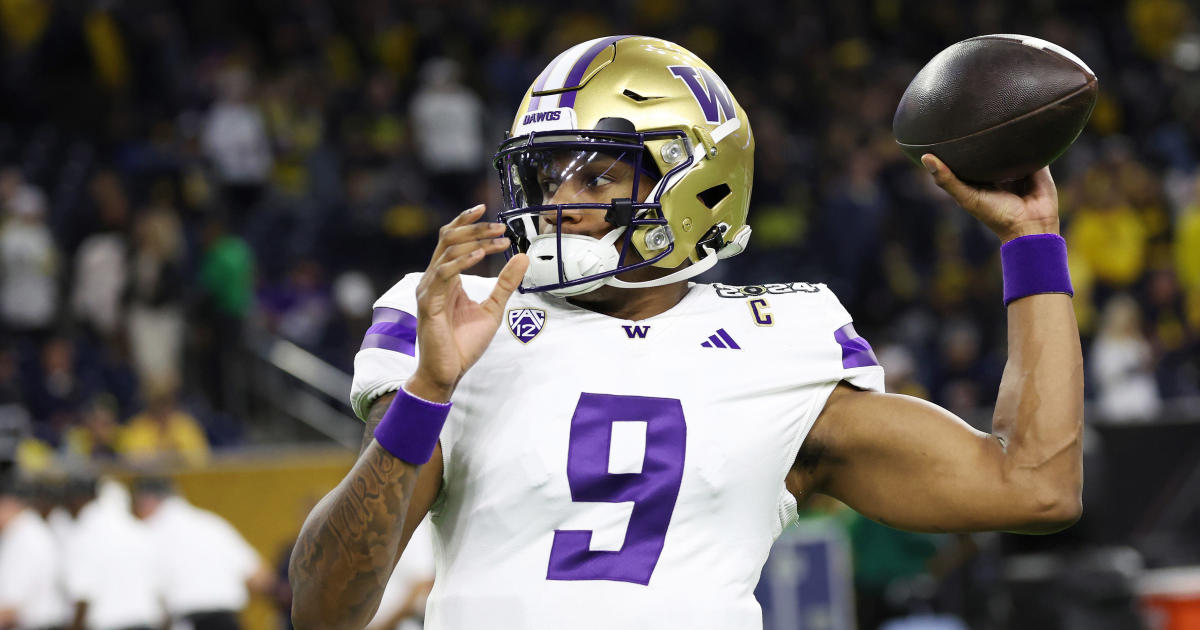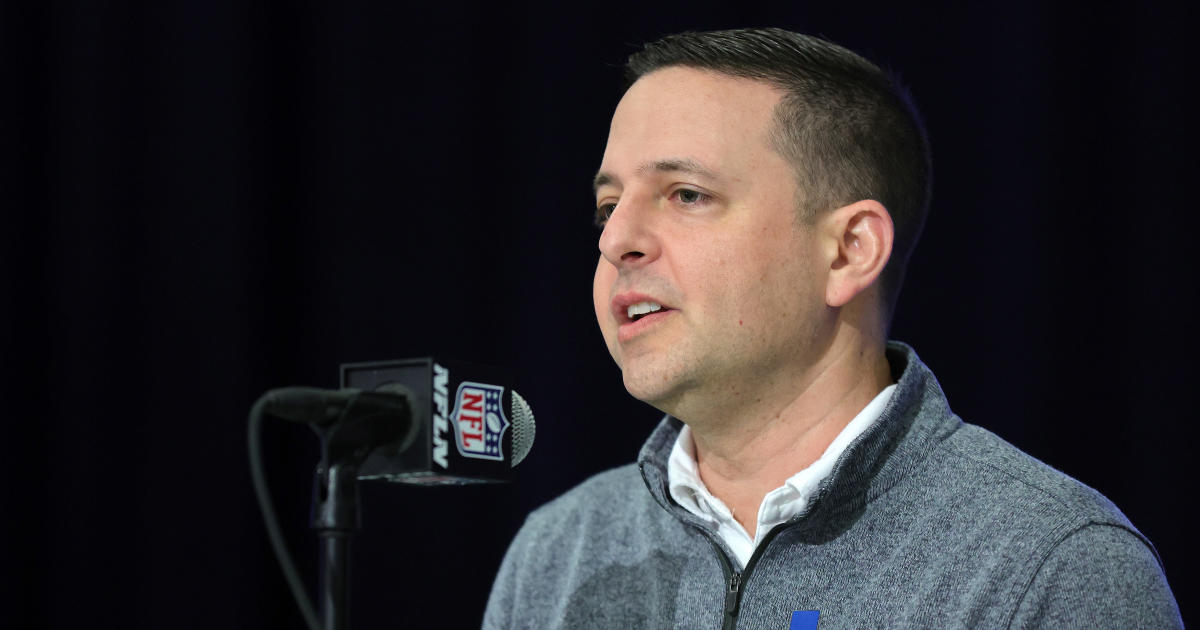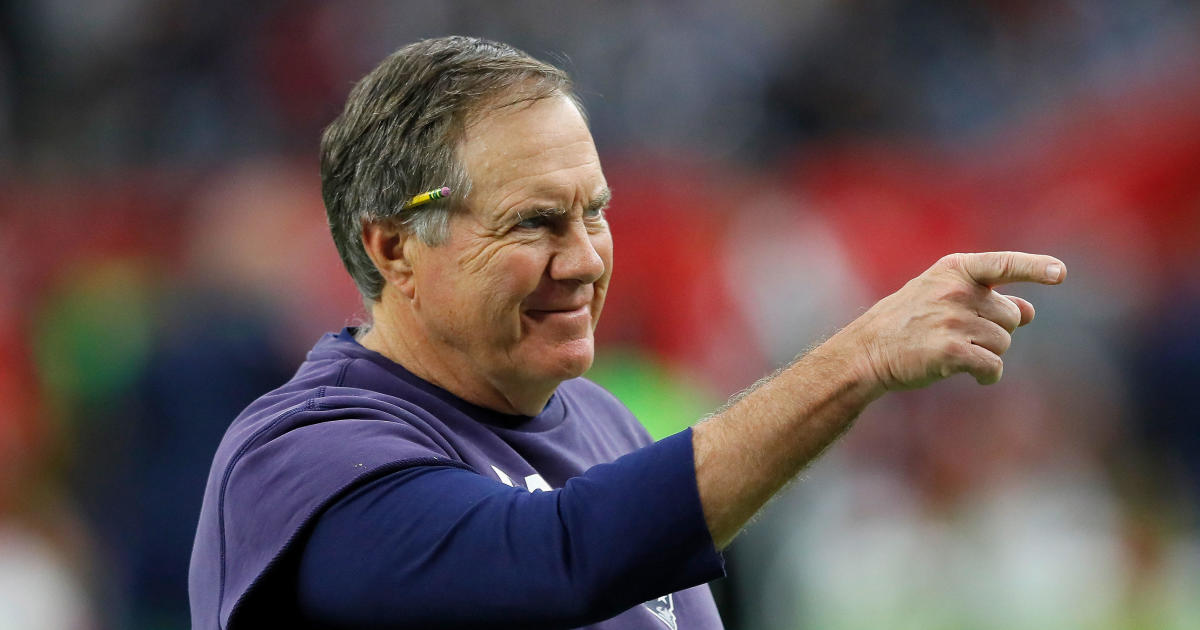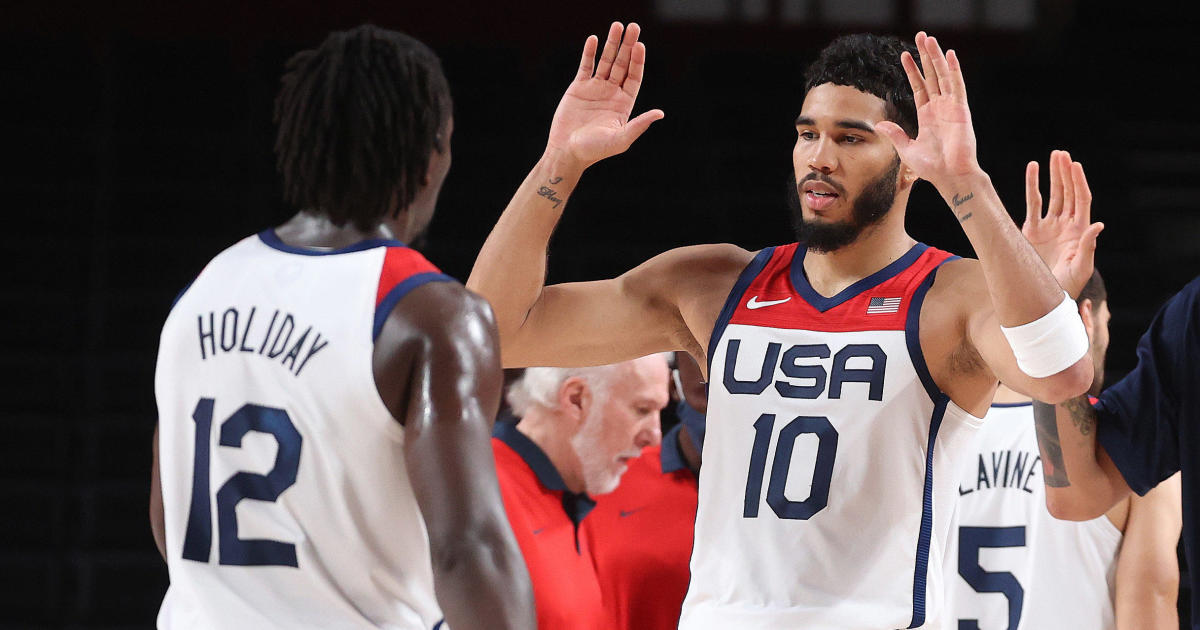Report: NFL, USA Football Trumpeted False Data About Protecting Kids From Concussions And Injuries
By Michael Hurley, CBS Boston
BOSTON (CBS) -- Perhaps the National Football League is coming to regret launching a public relations war against The New York Times.
That battle took place in March, when the NFL demanded a retraction from the Times after the paper published an extensive story about flawed concussion data collection by the league. The Times did not back down, responding in kind with a firmly worded rejection to the retraction request.
Now, the Times has dropped another bombshell on the league, once more over improper data collection regarding injuries and concussions. This issue, however, doesn't affect professional football players. It affects children.
The Times reported that the league-sponsored initiative, Heads Up Football, has been trumpeted by the NFL and USA Football as having reduced injuries by 76 percent and concussions by 30 percent. The idea behind the program was to assuage parents who were concerned about their children playing a violent sport like football amid all of the research developments into concussions, CTE, and the like.
The problem is ... the Times found that those numbers on reducing injuries just weren't true.
"The league and U.S.A. Football, youth football's governing body, which oversees the program, have sold Heads Up Football to thousands of leagues and parents as having been proved effective — that an independent study showed that the program reduced injuries by 76 percent and concussions by about 30 percent," Alan Schwarz reported. "That study, published in July 2015, showed no such thing, a review by The New York Times has found."
Indeed, a cursory Google search of that "data" brings up numerous stories touting the increased safety from the Heads Up program.
USA Football, February 2015: "Compared to non-Heads Up Football leagues, leagues that adopted Heads Up Football had a 76 percent reduction in injuries. ... Compared to non-Heads Up Football leagues, leagues that adopted Heads Up Football had a 34 percent reduction in concussions in practices and a 29 percent reduction of concussions in games."
USA Football, December 2015: "Youth football leagues adopting Heads Up Football typically have 87 percent lower injury rates during practice in organizations with Heads Up Football coach education plus Pop Warner practice guidelines that limit contact ... [and] 82 percent lower concussion rate during practice with Heads Up Football coach education and Pop Warner practice guidelines among 11- to 15-year-old athletes."
USA Today High School, February 2015: "Datalys said the Heads Up leagues had a 34 percent reduction in concussions in practice and a 29 percent reduction in games. ... Datalys also said that Heads Up players have a 76 percent reduction in overall injuries."
That USA Today story features quotes from NFL commissioner Roger Goodell and Jeff Miller, who at the time was the senior VP of health and safety. He has since resigned.
Goodell: "It's teaching coaches how to coach safe techniques. It's teaching kids how to play the game safely, and that's good for the long-term future of the game, and we'll continue to invest in it as we've done."
Miller: "I would tell a parent, and as one whose son is about to start playing tackle football this coming fall, there's no safer time for your son to play football. We have laws in 50 states now that … tell people how to deal with youth concussions. We have, through USA Football, at least more than 100,000 coaches who are trained and certified. … So the game has changed a great deal from those retrospective studies that may have analyzed players who played youth football 40 years ago versus what's going to happen on the football fields this fall."
Miller also told ESPN in 2014, "Heads Up Football makes the game safer."
The USA Football story included four links in the middle of the post, titled "Why I'm fine with my son playing football," "Yes, my son plays youth football," "American Academy of Pediatrics offers recommendations for youth football, sets no starting age" and "Datalys Center study finds USA Football's Heads Up Football program reduces injuries."
Clearly, the program made a very strong push to tell parents that Heads Up Football made the sport safe enough for their children to play. And it was all based on data that simply didn't exist.
You may notice that the Times reported that the results of the study were published in July 2015, while two of the aforementioned stories were published in February 2015. That's because, per the Times, "the questionable data and conclusions were actually preliminary results provided by Datalys five months before the study was published. The lead researchers for Datalys, Thomas Dompier and Zachary Kerr, confirmed in interviews that, despite knowing that the final paper contradicted their preliminary claims, they did not inform U.S.A. Football of this until last month, one day after speaking with The Times."
When that final data came out in July, the numbers didn't actually show any noticeable decrease in concussions from the Heads Up program.
"As it turned out, only leagues that adhered to Pop Warner's rules saw a meaningful drop in concussions. Leagues that used Heads Up Football alone actually saw slightly higher concussion rates, although that uptick was not statistically significant. The previously reported drops were clearly driven by a league's affiliation with Pop Warner, not Heads Up Football," Schwarz wrote. "Similarly, Heads Up Football leagues saw no change in injuries sustained during games unless they also used Pop Warner's practice restrictions."
Schwarz reported that injuries overall did decrease, but only by about 45 percent, which was obviously much less than 76 percent touted by USA Football and the NFL.
Schwarz added that the false data continues to be parroted by youth football programs and coaches, including one coach in Alabama presenting the "information" as recently as last week.
The presence of the Heads Up program has always been a bit of a conundrum for the league. Noticing the dropping numbers of participants in youth football, it was clear to the league that something had to be done to preserve the sport's future. Yet an outright acknowledgment of a concussion problem would hurt the league's stance in legal battles against former players who were looking to be compensated to the bodily damage they suffered from playing in the NFL.
So, the NFL always kept a layer of separation between itself and the program. However, the Times noted, "While U.S.A. Football is said to operate independently from the N.F.L., the league is its primary source of operating funds, and some researchers consider the two almost indistinguishable."
There's also an important point to be made about Datalys accepting responsibility for not sharing the results of the published report in July 2015, months after the "preliminary data" set the narrative for the safety of Heads Up Football. It may be true, but considering the significance of the subject -- the safety of children -- it's fair to expect USA Football to publicize the actual results of the independent study. Instead, the faulty "preliminary data" remains prominently displayed on the organization's website in an effort to entice more families to allow their children to play football.
Datalys' president accepting blame for the discrepancy also isn't surprising, considering the NFL's history of struggling to accept fault while finding someone else to blame.
It's worth noting that the Chicago Tribune's John Keilman reported last August that the study commissioned by USA Football determined no meaningful drop in concussions among players in the Heads Up program. That story, however, was somewhat buried. Likewise, ESPN's Outside The Lines openly questioned many of the program's claims back in 2014.
The Heads Up program has been propped up by Goodell as a major initiative in making the game safer.
Goodell famously downplayed the danger of playing football this past February at his pre-Super Bowl press conference.
"If I had a son ... I'd love to have him play the game of football because of the values you get," Goodell said. "There's risk in life. There's risk in sitting on the couch."
There's also risk in promoting false data when trying to convince parents that it's safe for their children to play football. It doesn't look great when the truth is revealed.
You can email Michael Hurley or find him on Twitter @michaelFhurley.



